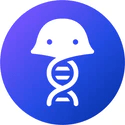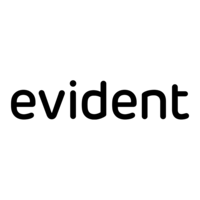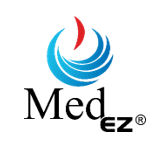Top Lab Management Softwares
Lab Management software optimizes the operations of laboratories by digitizing essential processes. This software streamlines tasks such as sample tracking, data management, and workflow automation, enhancing efficiency and accuracy. Users benefit from integrated tools that offer a comprehensive view of lab activities. It aids in maintaining compliance with industry standards and regulations while... Read More
111 companies found
Product Description
ProMed is a comprehensive healthcare management software designed to simplify and enhance the everyday operations of medical practices, clinics, and healthcare providers. Created with ease of use in mind, ProMed aims to take the administrative burdens off healthcare professionals, allowing them to focus more on patient care and less on paperwork. ProMed offers a range of features that cover the e... Read More
Users
- • No Data
Industries
- • No Data
Market Segment
- • No Data
Product Description
Benchling is a software platform designed for researchers and scientists working in the life sciences industry. It aims to streamline and modernize the process of managing lab work, enabling teams to collaborate more efficiently and keep track of their work with ease. Benchling provides a unified space to document experiments, manage workflows, and store all scientific data in one place. For scie... Read More
Users
- • No Data
Industries
- • No Data
Market Segment
- • No Data
Constructor
Product Description
Constructor is a software designed to make building and managing search and product discovery features simpler for online retailers. Instead of spending countless hours and resources developing custom search solutions, businesses can use Constructor to improve how their customers find products on their site. The core of Constructor's appeal lies in its user-friendly approach. It focuses on unders... Read More
Users
- • No Data
Industries
- • No Data
Market Segment
- • No Data
Product Description
Quartzy is a straightforward and user-friendly lab management software designed to help research teams manage their supplies and streamline their operations. It’s ideal for labs in academia, biotech, and other life science sectors where managing inventory and ordering supplies can often be time-consuming and chaotic. What makes Quartzy different is its focus on simplicity and efficiency. It takes... Read More
Users
- • No Data
Industries
- • No Data
Market Segment
- • No Data
Product Description
BookitLab is a laboratory management software designed to make the day-to-day operations of research facilities smoother and more efficient. It’s created with the understanding that managing a lab involves juggling many tasks—scheduling equipment, tracking inventory, overseeing compliance, and handling data. BookitLab simplifies these challenges into one user-friendly platform. Whether you’re man... Read More
Users
- • No Data
Industries
- • No Data
Market Segment
- • No Data
Product Description
LabWare is a dependable and user-friendly software solution designed to help laboratories of all sizes manage their data and operations more efficiently. If you run a lab, you know how crucial it is to be organized and meticulous with every detail. LabWare makes this easier by providing tools that simplify tasks like sample tracking, workflow automation, and data analysis. One of the main strengt... Read More
Users
- • No Data
Industries
- • No Data
Market Segment
- • No Data
Product Description
CloudLIMS is a straightforward and efficient software designed to help laboratories manage their information and workflows smoothly. If you're running a lab, you know how vital it is to keep track of samples, manage data, and ensure compliance with industry standards. CloudLIMS aims to simplify these tasks by offering a user-friendly platform that’s easy to navigate. What sets CloudLIMS apart is ... Read More
Users
- • No Data
Industries
- • No Data
Market Segment
- • No Data
Product Description
Evident is a software platform designed to help businesses manage and verify their essential data effortlessly. Whether you need to confirm customer details, credentials, or compliance requirements, Evident offers a straightforward way to handle it all without unnecessary complications. The platform allows you to easily collect and verify information, ensuring that any personal or organizational d... Read More
Users
- • No Data
Industries
- • No Data
Market Segment
- • No Data
Clustermarket
Product Description
Clustermarket is a software designed to simplify the management of lab equipment and schedules for scientific research teams. It’s especially helpful for labs that have a lot of shared equipment and personnel, making it easier to organize and maximize the use of resources. Instead of juggling multiple spreadsheets and calendars, Clustermarket brings everything together in one place. With Clusterm... Read More
Users
- • No Data
Industries
- • No Data
Market Segment
- • No Data
Product Description
MedEZ is a comprehensive healthcare management software designed to streamline operations for medical facilities of all sizes. Whether you're running a small clinic or a large hospital, MedEZ helps you simplify your administrative tasks, improve patient care, and manage your financial processes effectively. Developed with healthcare professionals in mind, this software offers a user-friendly inte... Read More
Users
- • No Data
Industries
- • No Data
Market Segment
- • No Data
What is Lab Management software and how does it benefit laboratories?
Overview
Lab Management software is a category of tools designed to facilitate the daily operations of laboratories across various industries, including healthcare, research, manufacturing, and education. These software solutions aim to streamline lab processes, allowing for better management of data, equipment, and personnel. By centralizing various aspects of laboratory operations, Lab Management software supports the efficient functioning and productivity of labs.
Key Benefits
Improved Efficiency and Productivity
Lab Management software aids laboratories by automating repetitive tasks such as scheduling, data entry, and equipment maintenance. This automation reduces manual labor, minimizes errors, and frees up time for scientists and lab technicians to focus on critical research and analysis tasks. Consequently, laboratories can enhance productivity and throughput.
Enhanced Data Management
Effective data management is crucial in laboratories, where large volumes of data are generated daily. Lab Management software provides centralized data storage that allows easy access and retrieval of information. This feature ensures that data is not only secure but also available for analysis and reporting, enabling labs to maintain consistent quality and compliance with industry standards.
Compliance and Quality Control
In regulated industries, maintaining compliance with standards and protocols is vital. Lab Management software assists in documenting all lab activities, ensuring adherence to standard operating procedures (SOPs) and regulatory requirements. By supporting quality control processes, this software helps laboratories avoid non-compliance penalties and ensures reliable results.
Resource Management
Efficient resource usage is essential for optimal lab performance. Lab Management software allows labs to track and manage inventory and lab supplies, preventing stockouts and overstock situations. It also facilitates equipment management by scheduling regular maintenance and calibration, extending equipment lifespan, and avoiding costly disruptions.
Collaboration and Communication
Modern laboratories often consist of diverse teams working on various projects. Lab Management software enhances collaboration by providing platforms for communication, data sharing, and real-time updates. This enables seamless coordination among team members, irrespective of location, fostering more cohesive and productive teamwork.
Customization and Scalability
Each laboratory has unique requirements based on their specific workflows and objectives. Lab Management software can often be customized to suit these needs, offering flexibility in adapting to different lab environments. Moreover, many of these software solutions are scalable, allowing for growth and adaptation as the laboratory's needs evolve over time. This scalability ensures that labs can accommodate increased workload and complexity without overhauling existing systems.
Decision-Making Support
By providing comprehensive data analytics tools, Lab Management software equips lab managers with insights into operational metrics and performance indicators. This information can be used to make informed decisions about process improvements and resource allocations, ultimately leading to more strategic and efficient laboratory operations.
In summary, Lab Management software is an essential tool that underpins the efficient and effective operation of modern laboratories. Through various functionalities, it enhances productivity, ensures data integrity, supports compliance, and facilitates collaboration, thus benefiting laboratories in multiple ways.
How does Lab Management software improve laboratory workflow efficiency?
Streamlined Data Management
Lab Management software enhances laboratory workflow efficiency primarily by providing streamlined data management. Laboratories manage large volumes of data, from sample processing to test results. The software centralizes data storage, allowing quick data access for all users. This reduces time spent searching for information, which enhances overall productivity.
Automated Processes
Automation is a vital feature of Lab Management software. It automates repetitive tasks like sample tracking, inventory management, and report generation. Automation decreases human error and frees up staff time for more complex tasks, increasing workflow efficiency. Automation makes processes consistent, which is crucial for compliance and quality control.
Enhanced Collaboration and Communication
Lab Management software fosters collaboration among laboratory staff. By providing a centralized platform, it allows various teams to access and share data seamlessly. Improved communication leads to fewer mistakes and misunderstandings, contributing to a more efficient workflow. The software often includes tools for messaging or leaving notes, ensuring that everyone stays informed about tasks and progress.
Inventory and Resource Management
Efficient inventory management is crucial for a laboratory. Lab Management software assists in tracking inventory levels, ordering supplies when necessary, and managing resources efficiently. By preventing shortages and overstocking, the software ensures that the laboratory operates smoothly without unnecessary interruptions. Proper inventory management cuts down on time wasted searching for supplies and also reduces costs.
Real-Time Monitoring and Updates
Lab Management software offers real-time monitoring capabilities, allowing laboratories to keep track of ongoing processes. This ensures that any issues can be addressed immediately, preventing workflow disruptions. The system updates stakeholders in real time, ensuring optimum coordination and operational efficiency. Timely updates are essential for maintaining workflow momentum and avoiding project delays.
Regulatory Compliance and Standardization
The software aids in maintaining regulatory compliance by standardizing procedures and record-keeping. By aligning workflow processes with industry standards, the software minimizes the risk of compliance violations. This standardization ensures consistency across operations, improving both quality and efficiency.
Customizable Workflow Templates
Lab Management software often includes customizable workflow templates. This allows laboratories to tailor processes according to specific needs. Tailored workflows help in reducing redundancy and optimizing task allocation, which enhances the overall efficiency of laboratory operations.
Improved Scheduling and Task Management
Scheduling is a crucial component in laboratory operations. Lab Management software includes tools for managing schedules and tasks efficiently. This ensures that all laboratory operations are conducted as per the planned timetable. Optimized scheduling minimizes downtime and ensures that all resources are utilized to their full potential, leading to enhanced workflow efficiency.
Comprehensive Reporting and Analytics
Lab Management software offers robust reporting and analytics features, providing insights into laboratory operations. These insights are valuable for identifying bottlenecks and areas for improvement. By leveraging analytics, laboratories can make data-driven decisions to enhance workflow efficiency further. Detailed reports assist in better resource allocation and operational planning.
Lab Management software plays a pivotal role in improving laboratory workflow efficiency by integrating data management, automation, collaboration, and regulatory compliance into one efficient system. It supports various aspects of laboratory operations, resulting in optimized workflow and increased productivity.
What features should a good Lab Management software include?
Sample Tracking and Management
A core feature of Lab Management software is sample tracking and management. This allows labs to efficiently record, track, and manage samples from collection to disposal. It ensures accurate sample labeling and provides an audit trail of sample handling.
Inventory Management
Efficient inventory management is essential for labs to maintain stock levels of reagents, chemicals, consumables, and equipment. Lab Management software should have a system to alert when stock levels are low, automate ordering, and keep track of inventory costs.
Experiment and Workflow Automation
Streamlining laboratory processes through experiment and workflow automation is crucial. This feature helps labs to automate repetitive tasks, standardize workflows, and ensure proper documentation, enhancing productivity and reducing human error.
Equipment Maintenance and Calibration
Managing laboratory equipment is critical for ensuring accuracy and safety. Lab Management software should feature scheduling tools for regular maintenance and calibration of equipment. It should maintain equipment logs and notify lab personnel of upcoming or overdue check-ups.
Compliance and Regulation Management
Lab Management software should aid in maintaining compliance with industry standards and regulations. Features such as document control, digital signatures, and audit trails help labs demonstrate compliance with Good Laboratory Practices (GLP), ISO standards, and other regulatory requirements.
User Management and Access Control
Ensuring data security and proper access control is vital. Lab Management software should feature user roles and permissions, allowing labs to manage who can access specific data, functions, and information. This prevents unauthorized access and ensures data integrity.
Data Analysis and Reporting
Labs generate a significant amount of data, and robust data analysis and reporting features are necessary. The software should allow for easy data visualization, custom reporting, and statistical analysis. This supports decision-making and helps in detecting trends and anomalies.
Collaboration and Communication Tools
Facilitating communication between team members is crucial in a lab setting. Lab Management software should include tools for collaboration, project management, and communication, ensuring that team members can share information and work together effectively.
Integration with Instruments and Systems
Lab Management software should seamlessly integrate with laboratory instruments and external systems such as Laboratory Information Management Systems (LIMS), ERP systems, and Electronic Lab Notebooks (ELN). This ensures streamlined data flow and efficient lab operations.
Customization and Scalability
Every lab has unique needs, and good Lab Management software should be customizable and scalable. It should adapt to the specific requirements of different lab setups and grow as the lab expands in capacity and scope.
Mobile Access and Cloud Support
Modern labs require flexible access. Therefore, Lab Management software should support mobile devices and cloud-based access, allowing team members to access and manage data from anywhere, enabling remote work and collaboration.
Cost Management and Budgeting Tools
Effective cost management is essential for labs to run within budget. Tools for tracking expenses, generating financial reports, and managing budgets should be part of Lab Management software. This helps labs optimize resource allocation and control costs.
How can Lab Management software enhance data accuracy and security?
Lab Management software plays a pivotal role in modern laboratories by streamlining data handling and bolstering security measures. This crucial software encompasses a suite of functionalities tailored to the unique needs of laboratory settings, ensuring both data accuracy and security are maintained at high standards.
Improved Data Accuracy
-
Automated Data Entry
By automating the data entry processes, Lab Management software reduces the likelihood of human errors. Automation ensures consistent data input, mitigates transcription errors, and facilitates accurate tracking of lab operations. -
Real-time Data Processing
Lab Management software provides real-time data processing capabilities. This allows laboratories to capture real-time data from instruments and experiments, enhancing the accuracy of data collected and recorded. -
Standardization of Protocols
The software enforces standardized protocols, ensuring that all data entries are conducted under uniform guidelines. This consistency aids in eliminating discrepancies and maintaining the integrity of the collected data. -
Error Detection and Auditing Tools
Lab Management software often includes built-in error detection and auditing tools. These features enable laboratories to identify anomalies or inconsistencies within data sets, promoting corrective actions to maintain data accuracy.
Enhanced Data Security
-
User Access Controls
Security is significantly improved through stringent user access controls. Lab Management software ensures that only authorized personnel can access sensitive data, thereby minimizing potential data breaches. -
Data Encryption
Effective Lab Management software employs robust data encryption methods. Encrypting data protects it from unauthorized access, both during transmission and while at rest, ensuring confidentiality and integrity. -
Secure Data Storage
With cloud-based solutions being a common component of Lab Management software, secure data storage becomes a critical focus. The software uses secure servers to safeguard data against physical theft and cyber-attacks. -
Regular Backups and Disaster Recovery
Lab Management software supports regular data backups and efficient disaster recovery plans. This ensures that in the event of an unexpected data loss, laboratories can swiftly recover critical data without compromising on security. -
Compliance with Regulatory Standards
Ensuring compliance with industry standards and regulations (such as GDPR or HIPAA) is a security measure ingrained in Lab Management software. Adherence to these regulations ensures that data handling practices meet high-security benchmarks.
By implementing Lab Management software, laboratories enhance both data accuracy and security, enabling them to conduct operations more effectively while safeguarding sensitive information. These improvements result from the integration of automation, standardized practices, robust security protocols, and consistent data monitoring and evaluation.
What are the key factors to consider when choosing Lab Management Software?
When considering Lab Management Software, several key factors are essential to ensure the software meets your lab's needs effectively. These factors serve as a guide in selecting the appropriate software solution to enhance your lab operations.
User-Friendliness
A primary consideration when selecting Lab Management Software is its user-friendliness. The software should have an intuitive interface that requires minimal training. Easy navigation and clear instructions improve overall user experience, enabling staff to focus on essential tasks rather than struggling with complex software systems.
Customizability
Labs have unique processes and requirements. Hence, it is important to choose software that offers a high level of customizability. This capability allows for tailoring various features and functions to suit specific lab workflows without extensive reprogramming. Customizability ensures the software can evolve with changing needs.
Integration Capabilities
Integration with existing systems is crucial for seamless lab operations. The chosen Lab Management Software should effortlessly connect with other software tools and hardware used in the lab. This integration capability helps in maintaining data consistency and streamlining processes such as inventory management, analytics, and reporting.
Security and Compliance
Labs handle sensitive data, making security a top priority. Ensure that the Lab Management Software has robust security measures to protect data integrity and confidentiality. Additionally, consider whether the software aligns with industry-specific compliance standards and regulations to avoid legal complications.
Scalability
Scalability is another important factor. As laboratories grow, so will their software requirements. Select Lab Management Software that can scale effortlessly with your expanding needs. This flexibility saves future costs and operational headaches associated with migrating to new systems or upgrading existing ones.
Support and Training
Reliable customer support and comprehensive training resources are vital in the successful implementation of Lab Management Software. Opt for software that offers ongoing support, including technical assistance and regular updates. Access to detailed documentation and training sessions ensures lab staff can utilize the software to its full potential.
Cost and Budget
Cost considerations are inevitable. Evaluate the software's pricing model, whether subscription-based or one-time purchase, and ensure it aligns with your budget. Take into account all potential costs, including initial implementation, training, and potential upgrades or additional features.
Data Management and Reporting
Efficient data management capabilities are crucial for any Lab Management Software. The software should facilitate easy data entry, retrieval, and storage. It should also offer advanced reporting features to track lab activities, generate insights, and support decision-making processes.
Vendor Reputation and Reviews
Research the reputation and reliability of software vendors. Seek reviews and testimonials from other lab professionals who have used the Lab Management Software. A reputable vendor with positive feedback typically provides long-term stability and reliable service.
In conclusion, these key factors provide a comprehensive framework for selecting Lab Management Software that aligns with your lab's objectives and operational standards. Proper evaluation of these factors ensures a seamless integration of technology into your lab environment, enhancing efficiency and productivity.
How does Lab Management Software Support Compliance with Industry Standards?
Lab Management software plays a crucial role in the compliance journey of laboratories. Complying with industry standards like ISO 15189, GLP (Good Laboratory Practice), and CLIA (Clinical Laboratory Improvement Amendments) is essential for ensuring the credibility, accuracy, and reliability of lab results. Here's how Lab Management software helps achieve and maintain compliance:
Standardized Processes
Lab Management software helps standardize lab processes, ensuring consistency across different operations. By having predefined protocols, labs can comply with standards effectively. It allows labs to align their procedures with recognized practices, minimizing discrepancies and meeting compliance needs.
Documentation and Record Keeping
One critical aspect of compliance is maintaining accurate and detailed records. Lab Management software provides tools for comprehensive documentation. It automatically logs data, experimental results, and changes, keeping everything organized. This level of documentation meets regulatory requirements, making audits and inspections smoother.
Audit Trails
Having an audit trail is vital for compliance as it shows all changes and access to data over time. Lab Management software creates detailed audit trails, tracking activities and modifications. This transparency ensures that labs can demonstrate adherence to standards when needed.
Quality Control
Quality control is integral to compliance. Lab Management software offers tools for managing and tracking quality control measures within the lab environment. By monitoring samples, reagents, and calibration processes, the software ensures compliance with quality standards and helps prevent deviations.
User Access and Security
Managing who can access what information is crucial for maintaining data integrity. Lab Management software provides robust user management systems. It ensures that only authorized personnel can access sensitive information, thereby meeting compliance guidelines related to data security and privacy.
Reporting Capabilities
Generating accurate reports is part of many industry standards. With Lab Management software, labs can automate report generation, ensuring data is formatted and presented consistently. This capability aids in compliance with standards that require periodic reporting.
Training and Competency Management
Compliance requires verification of staff competencies and ongoing training. Lab Management software facilitates tracking of personnel training, certifications, and competency assessments. This ensures all team members meet the necessary standards, aligning with industry requirements.
Sample Tracking
Complete and accurate sample tracking is critical for both operational efficiency and compliance. Lab Management software assists in end-to-end tracking of samples, from reception to storage to testing. This traceability is necessary to meet various industry regulations.
Data Integrity
Ensuring data integrity is a requirement for compliance with many standards. Lab Management software maintains data integrity by minimizing errors during data entry, ensuring real-time data updates, and performing regular checks for accuracy and consistency.
Equipment Calibration and Maintenance
Lab Management software also supports the calibration and maintenance schedules of equipment. It sends reminders and logs maintenance activities, ensuring that all equipment functions optimally according to regulatory standards.
Using Lab Management software is integral for any lab striving to meet industry compliance standards. By providing tools for documentation, auditability, quality control, and user security, it supports the complex regulatory landscape within which modern laboratories operate.
Can Lab Management Software Be Integrated with Other Existing Laboratory Systems?
Lab Management software is crucial for enhancing the efficiency and accuracy of laboratory operations. A common question is whether it can integrate with other existing laboratory systems.
Integration Capabilities
Lab Management software typically offers robust integration capabilities. These systems are designed to work seamlessly with other laboratory platforms. This ensures that data flows smoothly across various components of the laboratory's infrastructure. Integration often involves connecting with Laboratory Information Management Systems (LIMS), Electronic Lab Notebooks (ELN), and other specialized equipment interfaces.
Data Exchange
Effective Lab Management software allows for efficient data exchange. It provides interfaces and APIs (Application Programming Interfaces) to facilitate communication. This interoperability supports diverse laboratory tasks. By automating data transfer, the need for manual input reduces significantly, minimizing errors and saving valuable time.
Equipment and Instrumentation
Lab Management software often integrates with laboratory instruments. It is compatible with a wide range of devices, from spectrometers to chromatography systems. This interoperability is significant in acquiring and analyzing data directly from instrumentation. Such integration ensures that data collection and processing are consistent and accurate, enhancing the reliability of experimental results.
Workflow Automation
Integration with existing systems streamlines laboratory workflows. Lab Management software supports the automation of sample tracking, inventory management, and reporting processes. By connecting with other systems, labs can establish a continuous workflow. This minimizes human intervention and allows labs to focus more on research and development rather than administrative duties.
Scalability and Customization
Integrating Lab Management software with existing systems allows labs to scale their operations efficiently. As labs grow, the need for handling large datasets and complex analyses increases. Integration offers the flexibility to customize processes and systems to meet specific laboratory requirements. This ensures that labs can adapt to new technologies and methodologies without overhauling their entire IT infrastructure.
Security and Compliance
Another benefit of integration is enhanced security and regulatory compliance. Laboratory data, particularly in sectors like pharmaceuticals and healthcare, is sensitive and regulated. Integrated Lab Management software often includes built-in measures to secure data and maintain compliance with industry standards. This safeguards information while ensuring that laboratory practices adhere to legal and ethical guidelines.
Collaboration and Communication
Integration fosters better collaboration and communication among lab teams. With centralized data access, team members from different departments can view and analyze data collectively. This shared access encourages collaborative problem-solving and innovation, ultimately leading to more rapid scientific discoveries.
In summary, Lab Management software is designed to integrate smoothly with a laboratory's existing systems. This integration supports data exchange, workflow automation, equipment interfacing, scalability, security, and collaboration. Ensuring these systems work together provides a cohesive, efficient, and effective laboratory environment.









